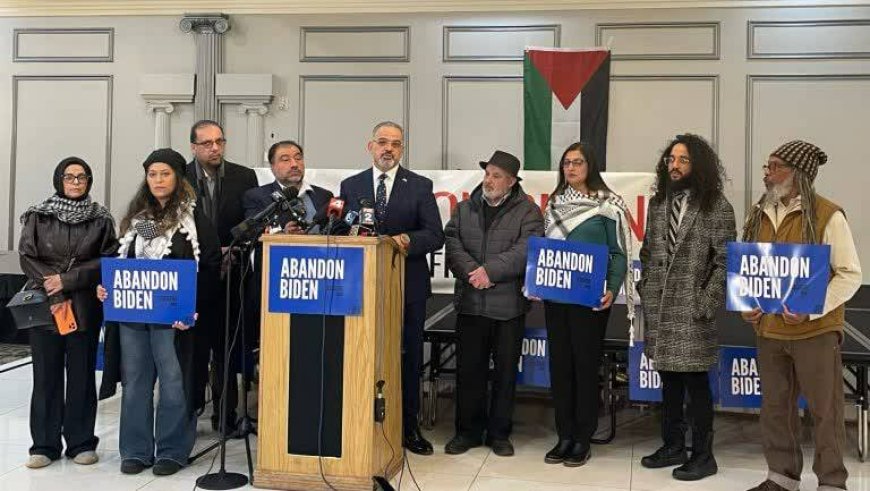From Dearborn to Detroit: Arab Americans and the US Presidential Election

As the final stage of the American elections looms, with nearly seven months left until the ballots are cast, the political arena is once again dominated by the familiar faces of Donald Trump, the Republican candidate, and Joe Biden, the Democratic nominee. The upcoming showdown between the incumbent and the former president mirrors the electoral contest of four years prior, a saga that has unfolded over the past half century with unprecedented fervor and intensity.
The landscape of the forthcoming elections is shaped by the intricate tapestry of American politics, where the 50 states of the nation are bifurcated into distinct categories. On one hand, there are states like California with stalwart bastions of Democratic support, and on the other, strongholds of Republican allegiance such as Texas. Then there are the swing states, a pivotal cohort that oscillates between the two major parties with each electoral cycle. Notable among these are North Carolina, Ohio, and Florida, which have leaned towards the Republicans, while Virginia, New Mexico, New Hampshire, and Nevada have traditionally favored the Democrats.
Amidst this electoral maelstrom, the role of ethnic and racial minorities, integral constituents of the American mosaic, assumes paramount significance in shaping the national discourse on domestic and foreign policy. In this milieu, the contributions of Muslims and Arabs stand out prominently. According to the Arab American Institute, approximately 3.5 million Americans trace their heritage to Arab roots, constituting around 1% of the US populace. Within this demographic, 65% identify as Christians and 30% as Muslims, with a minority adhering to the Jewish faith. Notably, Dearborn, Michigan, stands as a beacon of Arab American culture, with over 40% of its population hailing from Arab descent. Similarly, states like Georgia, Pennsylvania, Florida, and Virginia harbor sizable Arab communities, underscoring their growing influence in the American political landscape.
Despite being a numerical minority in the vast tapestry of American society, Muslims wield a disproportionate impact on the trajectory of presidential elections in the United States. Over the years, presidential candidates have courted this influential minority, recognizing the pivotal role their votes play in shaping electoral outcomes.
Central to this electoral calculus is the state of Michigan, a linchpin in the electoral map due to its sizable Muslim population and 16 electoral votes. Current projections indicate that Michigan holds the key to the outcome of the presidential race. Should Joe Biden secure the states won by Hillary Clinton in 2016 along with Wisconsin and Pennsylvania, he would amass 263 electoral votes. Conversely, if Trump reclaims his 2020 victories and adds Georgia and Arizona to his tally, he would reach 259 votes, both falling short of the decisive threshold of 270 electoral votes. In this scenario, Michigan emerges as the decisive battleground that could tilt the balance of power.
Michigan's Muslim community, numbering around 200,000 eligible voters, has historically aligned with the Democratic Party. However, discontent looms on the horizon, fueled by grievances over the Biden administration's stance on the Israeli war on the Gaza Strip. The administration's response to the crisis in Gaza, its support for Palestinian rights, and efforts to combat anti-Arab sentiment are pivotal issues that could sway the vote in Michigan.
As Biden navigates this political minefield, the onus is on him to address the concerns of Muslim and Arab voters and realign his policies to garner their support. Failure to do so risks alienating a crucial segment of the electorate, potentially tipping the scales in favor of third-party candidates or dampening voter turnout. The stakes are high, and the outcome in Michigan could well determine the course of the national election.
In this high-stakes political drama, the fate of the US presidential election hangs in the balance, intricately intertwined with the aspirations and grievances of Muslim and Arab communities across the nation. As the countdown to the November elections continues, all eyes are on Michigan, where the convergence of demographics, politics, and policy imperatives will shape the destiny of a nation at a crossroads.













































